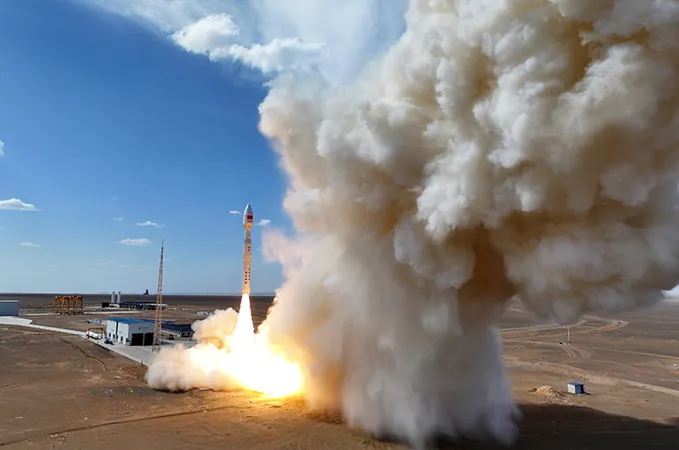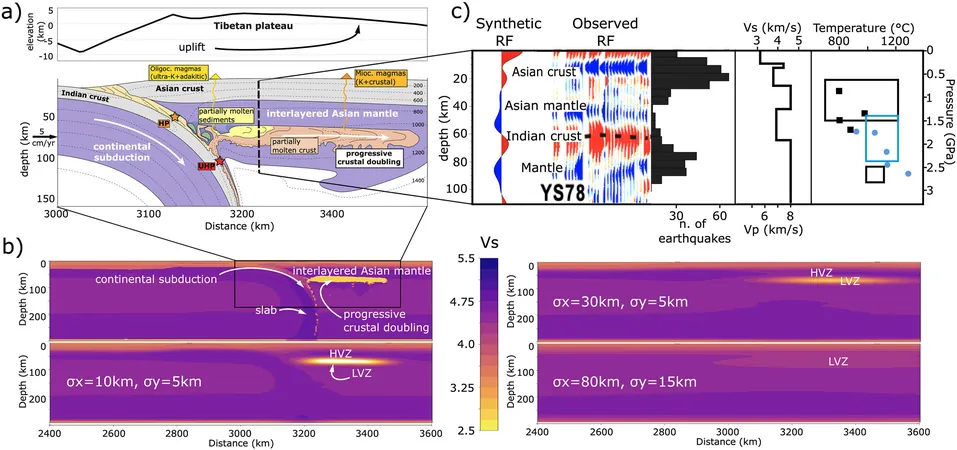
China's Commercial Space Ambitions Stalled by Major Hurdles, Insiders Reveal
2025-08-21
Author: Nur
In a surprising turn of events for China's booming commercial space industry, insiders have disclosed that significant challenges are hampering its advancement. Despite an impressive nine rocket launches in just 25 days—accounting for over a quarter of the year's total—bottlenecks in capacity and technology are casting shadows over the sector's future.
Last week's launch by the startup Landspace fell short of expectations when their Zhuque-2E Y3 carrier rocket faced an anomaly, leading to its failure. The exact cause of this setback remains undisclosed, further fueling concerns about reliability.
While satellite manufacturing costs have seen a downward trend thanks to advancements in technology, the costs associated with launching these satellites are skyrocketing. A senior executive from a satellite manufacturer revealed that the expense of sending a satellite into orbit can surpass its production cost. Specifically, the price per launch is pegged at about CNY150,000 (USD20,900) per kilogram.
For instance, sending a 500-kilogram satellite into space could cost a staggering CNY75 million (USD10.4 million). Jiang Luye, CTO of Xingsuo Technology, emphasized, "It's pricey, very pricey." He pointed out that by enhancing the carrying capacity of rockets, companies could deploy more satellites in a single launch, dramatically lowering costs.
However, challenges remain, particularly due to the prevalent use of kerelox rocket technology in China, which—while effective—leaves behind hard-to-clean deposits, exacerbating costs. In contrast, SpaceX's renowned Raptor engine utilizes liquid oxygen and methane, making it more conducive for reuse.
Jiang's firm is actively researching the next generation of rockets with significantly higher liftoff weights. He expressed optimism, stating, "The greater the single-time carrying capacity, the lower the overall launching costs will be," with potential reductions of 50% or more.
Currently a team of 60, Xingsuo Technology plans to expand to 200 by the year's end, tapping into talent from top-tier Chinese universities. Their research will heavily emphasize advancements in rocket recycling and engine technology, aiming to position China as a leader in the competitive commercial space race.



 Brasil (PT)
Brasil (PT)
 Canada (EN)
Canada (EN)
 Chile (ES)
Chile (ES)
 Česko (CS)
Česko (CS)
 대한민국 (KO)
대한민국 (KO)
 España (ES)
España (ES)
 France (FR)
France (FR)
 Hong Kong (EN)
Hong Kong (EN)
 Italia (IT)
Italia (IT)
 日本 (JA)
日本 (JA)
 Magyarország (HU)
Magyarország (HU)
 Norge (NO)
Norge (NO)
 Polska (PL)
Polska (PL)
 Schweiz (DE)
Schweiz (DE)
 Singapore (EN)
Singapore (EN)
 Sverige (SV)
Sverige (SV)
 Suomi (FI)
Suomi (FI)
 Türkiye (TR)
Türkiye (TR)
 الإمارات العربية المتحدة (AR)
الإمارات العربية المتحدة (AR)